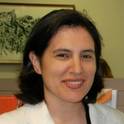I. WIENER’S CONTRIBUTION Norbert Wiener (Fig. 1) was born in Columbia, MO, USA, in 1894. His father, Leo Wiener, was the first Jew to be appointed a tenured, full professor at Harvard University [1], p. 25, raising Norbert in a multidisciplinary intellectual milieu that included American pragmatism [31]. Wiener wrote his first philosophical paper at age 10 on the role of approximation, uncertainty, and incompleteness of all human knowledge [2], p. 96 (Fig. 2). Norbert was famous for being a child prodigy graduating from Tufts University with a degree in mathematics at age 14 and a Ph.D. from Harvard University at age 18 in the philosophy of mathematical logic. At 19, he undertook postdoctoral study under Bertrand Russell, having written his dissertation on Whitehead and Russell’s Principia Mathematica. Key sources on Wiener’s life and work include his own two-volume autobiography [2], [3], along with Heims [4], [14], Masani [5], Conway and Siegelman [1], Galison [6], and Kline [7].
- Norbert,
- Wiener,
- MIT,
- Mathematician,
- Prodigy,
- History,
- Past,
- Interdisciplinary,
- Macy Conference,
- Vocabulary,
- Futures,
- Trajectory
Available at: http://works.bepress.com/kmichael/555/
